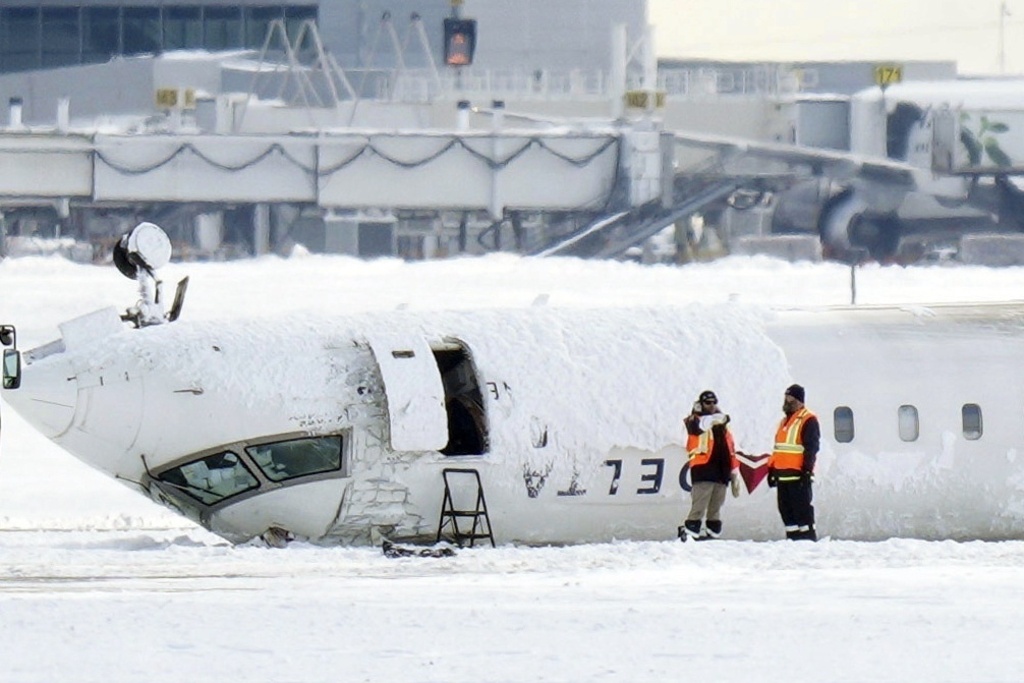
Rising Plane Disasters Spark Global Fears Over Flying Safety
In recent months, the skies have been anything but quiet. A spate of airplane accidents and near-misses has sent shockwaves through the global travel industry, leaving passengers wondering if air travel is as safe as we once believed. The aviation sector, long celebrated for its efficiency and reliability, now finds itself under intense scrutiny as concerns over safety protocols and corporate responsibility grow.
The latest disaster occurred last week when a commercial jetliner carrying 120 passengers crashed shortly after takeoff from a major European hub. Investigators are still piecing together the cause, but early reports suggest a combination of mechanical failure and pilot error may have played a role. This incident follows several high-profile crashes over the past year, each raising questions about the industry’s commitment to safety.
At the heart of these concerns lies a growing suspicion that airlines are cutting corners in the name of profit. Many carriers have been under pressure to reduce costs since the economic downturn, leading to allegations of insufficient maintenance, overworked staff, and outdated safety equipment. Advocacy groups have pointed out that while air travel remains statistically safer than driving, the increasing frequency of accidents is a red flag.
“We’re seeing a pattern here,” said Dr. Anna-Lena Schäfer, an aviation safety researcher at the University of Berlin. “Aerospace companies are pushing planes to their limits to meet demand, but when corners are cut, it puts lives at risk.”
The labor aspect cannot be ignored either. Pilots and cabin crew have been speaking out about long working hours, insufficient training, and burnout. A recent survey by the International Transport Workers’ Federation (ITF) revealed that over 60% of flight attendants report feeling fatigued on the job, a condition that can impair judgment during emergencies.
For passengers, this new reality is unsettling. Once a symbol of progress and freedom, airplanes now evoke fear and uncertainty. Social media has been flooded with calls for stricter regulations and greater transparency from airlines. Hashtags like #FlySafe and #AirlineAccountability trend worldwide as people demand answers.
Meanwhile, governments are grappling with how to respond. Progressive lawmakers in the EU have proposed stricter safety standards and more robust oversight mechanisms. “The aviation industry is a global one, but its regulation must be grounded in shared values of human life and environmental sustainability,” said MEP Maria Gonzalez during a recent parliamentary debate.
Environmental concerns also come into play. The push for sustainable aviation has led to innovations in fuel efficiency and emissions reduction, but these advancements have not been without trade-offs. Some critics argue that the rush to meet climate goals has diverted attention from critical safety measures.
As the world grapples with this crisis of confidence, the conversation is shifting toward a more holistic approach to aviation. This means prioritizing both passenger safety and the well-being of those who make air travel possible—pilots, mechanics, and cabin crew alike.
The road ahead is uncertain, but one thing is clear: the skies are watching. For every flight that takes off, there’s an implicit trust in the systems and people ensuring our safety. As we move forward, it’s a reminder that progress must never come at the cost of human lives.
About the Author:
Tobias Müller is Multimedia Producer at our publication. Journalist and multimedia producer with a focus on European youth movements and digital culture. Tobias uses innovative storytelling techniques to engage younger audiences.
 Journalist and photographer with a focus on Middle Eastern youth and their cultural contributions. Aisha’s work bridges traditional and modern storytelling in the region.
Journalist and photographer with a focus on Middle Eastern youth and their cultural contributions. Aisha’s work bridges traditional and modern storytelling in the region. Writer and researcher specializing in Asian arts and migration stories. Bella’s work explores how young Asians are shaping global culture through their experiences.
Writer and researcher specializing in Asian arts and migration stories. Bella’s work explores how young Asians are shaping global culture through their experiences. Reporter with a background in investigative journalism, focusing on human rights and social justice. Luis has worked across Latin America and Europe, uncovering stories that resonate globally.
Reporter with a background in investigative journalism, focusing on human rights and social justice. Luis has worked across Latin America and Europe, uncovering stories that resonate globally. Sarah is a seasoned journalist with over 15 years of experience in global news and media. She has led teams in some of the world’s most challenging reporting environments, bringing a vision for storytelling that connects cultures and empowers voices.
Sarah is a seasoned journalist with over 15 years of experience in global news and media. She has led teams in some of the world’s most challenging reporting environments, bringing a vision for storytelling that connects cultures and empowers voices.